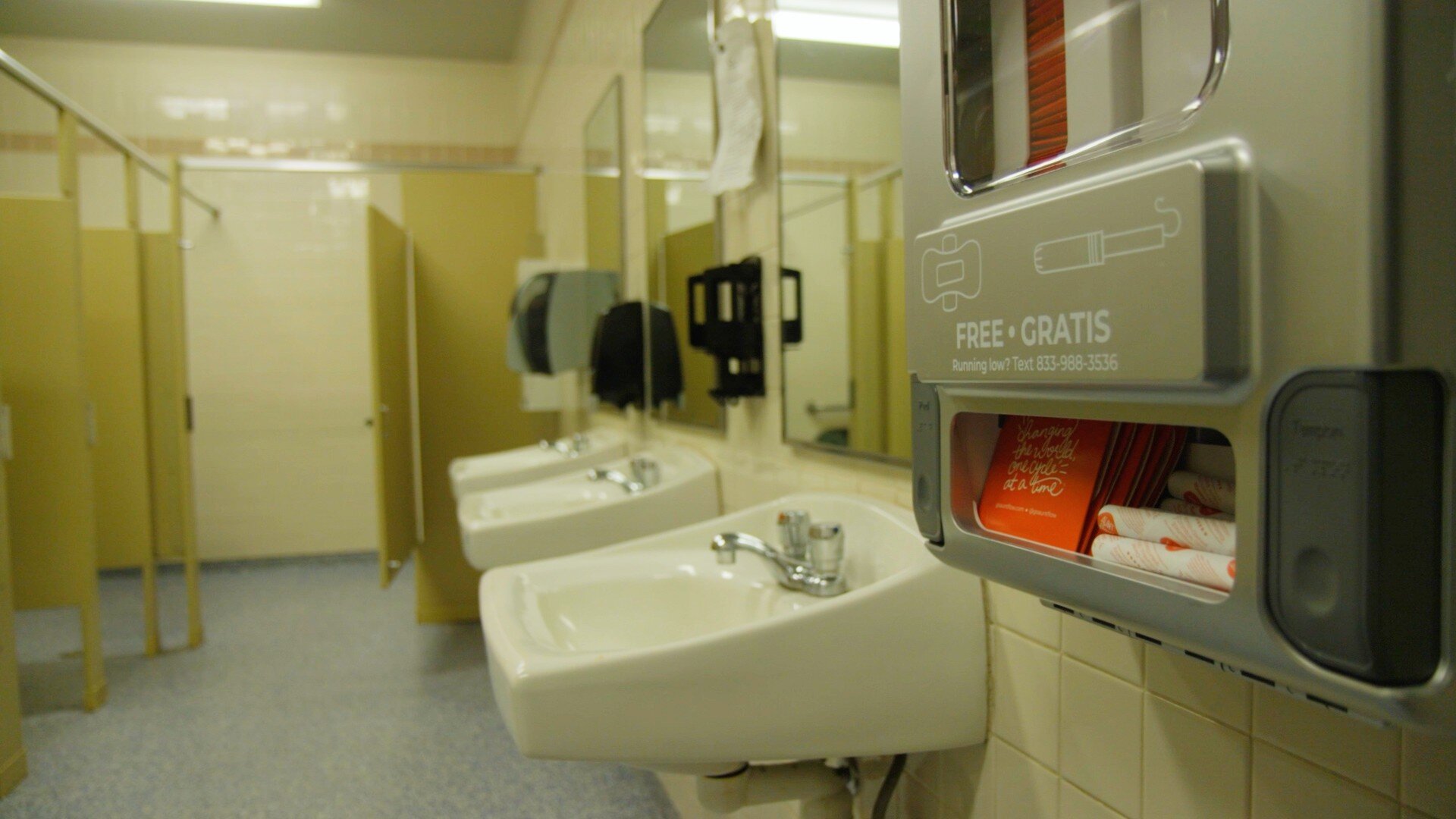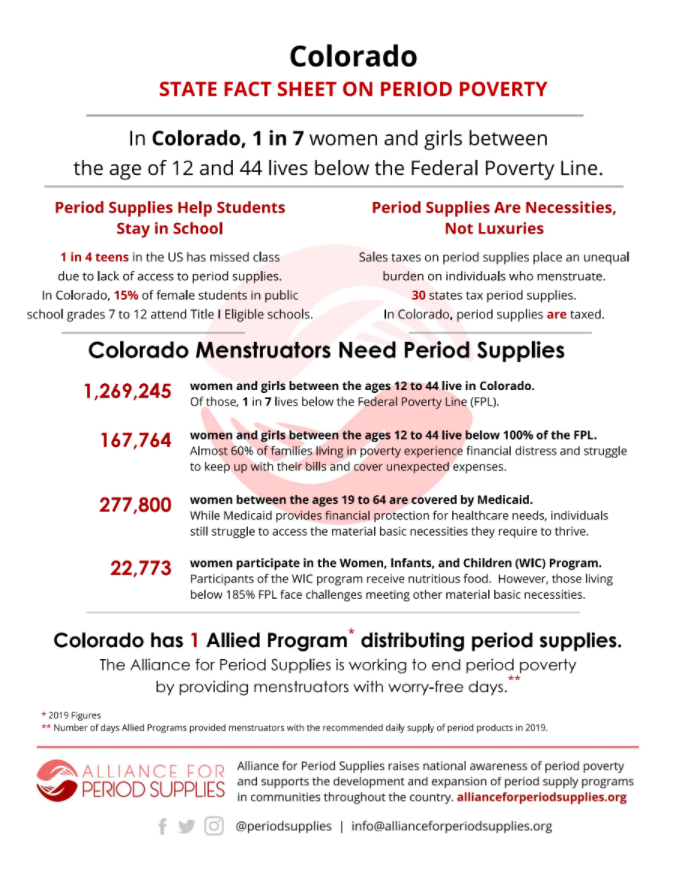Fruita student secures free menstrual products for her high school

FRUITA, Colo. — For decades, menstrual products have been a focal point for those fighting for equity in health care. Activists across the country have sought to change the way public systems address problems like the “pink tax,” tampon taxes and overall lack of accessibility to menstrual products.
Earlier this year, for example, the advocacy of a since-graduated Denver high school student led to DPS providing free tampons and pads in all restrooms.
But in some areas, the taboo of menstrual product accessibility has kept many people from taking action. That was the case at one school on Colorado’s Western Slope, until a student at Fruita Monument High School (FMHS) began doing her homework.
Adele Foley started her journey fighting period poverty with an assignment during her sophomore year. She chose to report on the pink tax and tampon taxes, a controversial tax on menstrual products that exists in Colorado, but not all states. It was here that she began to discover gender inequity, as well as the stigmas attached to menstrual product accessibility.
“When I first brought up free mensural products, people were like, ‘In hick-ville nowhere?’” said Foley. “This isn’t even the Front Range, this is the Western Slope.”
Now a senior at FMHS and as passionate as ever, Foley wanted to make real change in her community before graduating. In addition, she wanted to learn more about accessibility to menstrual products and what other states, cities and schools across the nation were doing about it. She discovered that a school in New York City, for example, began providing menstrual products for free and witnessed a 2.4% increase in attendance.

In her research, Foley also found that one in four women in the U.S. struggle to afford period products due to lack of income, and in Colorado, one in seven women and girls between the age of 12 and 44 live below the federal poverty line.
Foley told Rocky Mountain PBS that she has even seen faculty members give menstrual products to students out of their own pockets.
Driven by personal experience and the data published by the Alliance of Period Supplies, Foley began printing flyers of the facts and figures of period poverty and passed them around to teachers and staff, making the case that providing these products for free could improve student livelihood and even school attendance. A teacher told Foley they would introduce her plan in an upcoming staff meeting.

“A few days later I got a call from the principal, and I was like, ‘Oh shoot,’” Foley recalled. “I thought I would get a lot of push-back, but I didn’t get any.”
Principal Todd McCluskey was on board and wanted to support Foley’s cause. The schools decided to order menstrual product dispensers from Aunt Flow—an organization that uses 100% organic cotton products and donates one product for every 10 pads and tampons purchased.
The dispensers themselves were not free, however, and Foley needed to find funding.
With the help of her mother’s connections, Foley found funding from Family Health West, which donated $3,200 and allowed the school to purchase nearly 9,000 pads and tampons for the four dispensers the school planned to install. Fruita Monument would become the first high school in the Grand Valley to provide menstrual products at no cost to students or staff.
"Immediately I saw a positive reaction from students a day after they were here,” said Foley. “Five people that I barely knew said that it helped them that day.”
The dispensers are simple and intuitive. A person can easily press a button to release either a pad or tampon. To prevent over-use, the dispensers have a built-in delay system that stops people from accidentally draining the dispenser of products. Foley also chose to install one dispenser in Fruita’s single-use, gender-neutral bathroom to accommodate those who want additional privacy.
“Not everyone who looks like they have a period, have a period. And not everyone who gets a period looks like they get a period,” Foley explained, “That's another reason why I put one in the gender-neutral bathroom.”
With the instillation of the new Aunt Flow menstrual product dispensers, Foley hopes that Fruita will also see an increase in attendance, and that period poverty will eventually be eradicated in schools across District 51.
Matt Thornton is a multimedia journalist at Rocky Mountain PBS. He is based in Grand Junction. You can contact him at matthewthornton@rmpbs.org.